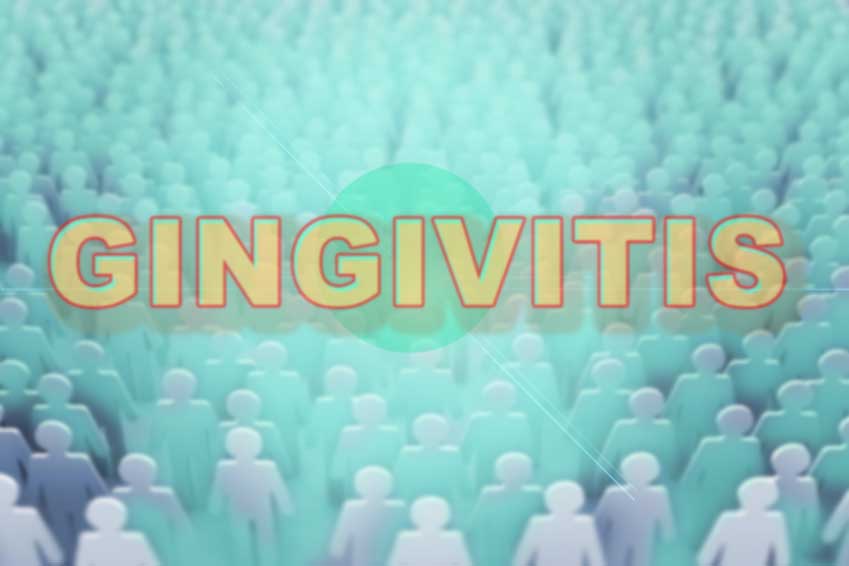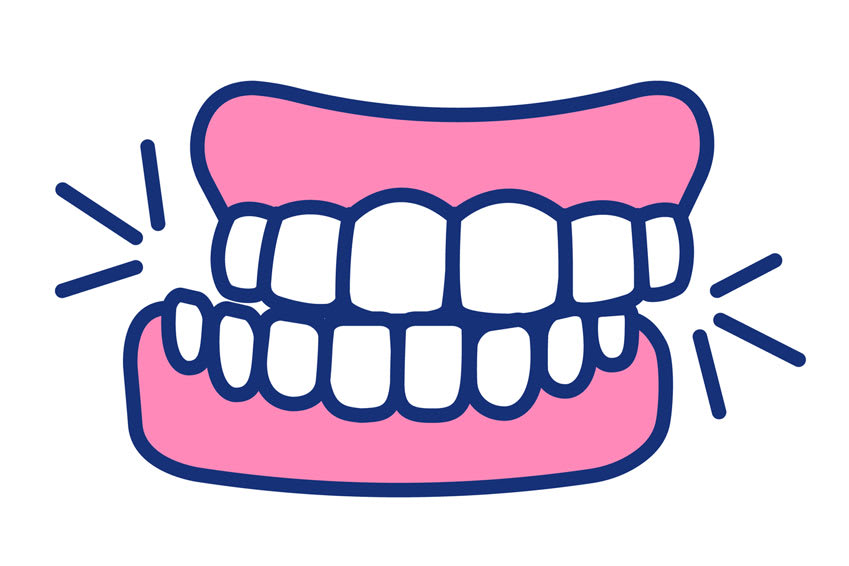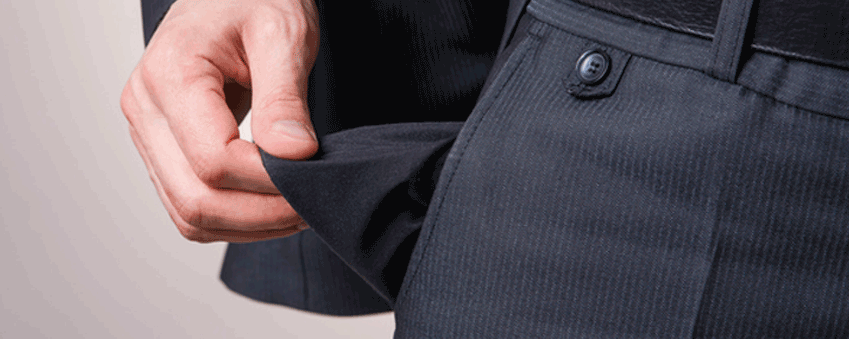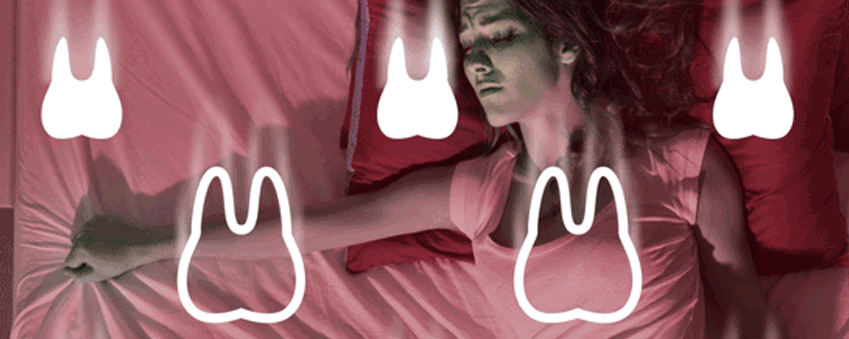► Watch our video
► In This Issue

Millions Have Gingivitis: How Not to Be One of Them
Gingivitis, also known as gum disease, is a very common condition that can lead to more serious health issues including heart disease. Find out more about gingivitis and what you can do to stop it…

“Are Dental Veneers Right For My Smile?”
Could your smile use some improvement? There are tons of solutions out there. Dental veneers just might be the right solution for you. Take a look…

FLASH! 7 Ways Smoking Harms Oral Health
Smoking affects a person’s oral health in many ways, and most smokers are unaware of the relationship. Let’s take a closer look at the harm caused by smoking to the mouth, teeth, gums, and throat.

“Grounds” for Attention: Don’t Ignore This Condition!
What can cause jaw pain, damage to your teeth and other uncomfortable symptoms? You may have heard the word “bruxism” – learn what it is, and how to stop it.

Millions Have Gingivitis: How Not to Be One of Them
Gingivitis, also known as gum disease, is a very common condition that can lead to more serious health issues including heart disease. Find out more about gingivitis and what you can do to stop it…

“Are Dental Veneers Right For My Smile?”
Could your smile use some improvement? There are tons of solutions out there. Dental veneers just might be the right solution for you. Take a look…

FLASH! 7 Ways Smoking Harms Oral Health
Smoking affects a person’s oral health in many ways, and most smokers are unaware of the relationship. Let’s take a closer look at the harm caused by smoking to the mouth, teeth, gums, and throat.

“Grounds” for Attention: Don’t Ignore This Condition!
What can cause jaw pain, damage to your teeth and other uncomfortable symptoms? You may have heard the word “bruxism” – learn what it is, and how to stop it.
► more for you

Am I (Dramatic Pause) Overbrushing My Teeth?
You’re more likely to develop dental problems caused by too little tooth cleaning than too much, but that doesn’t mean overbrushing isn’t a risk as well…
If you’re extremely focused on tooth cleanliness and don’t realize the effects excessive brushing could have on your teeth, you may be at risk for problems related to overbrushing.
For example, if you brush too hard and long each day or at the wrong times, your toothbrush could actually be wearing away at your enamel enough to cause long-term issues.
Here are some strategies to help you avoid overbrushing.
1. Brush at the right times
You may be wondering how the plastic bristles on your toothbrush could be strong enough to wear away at your enamel. One factor can be if you brush when your teeth are already a little softer than usual.
When your teeth are exposed to food (especially sugary or starchy food), the bacteria in your mouth start producing acids that slightly soften the tooth enamel. Bottom line is that right after eating is when your teeth are most vulnerable to wear and tear. Of course, that’s also when you might brush your teeth in order to remove that excess food.
Some experts advise waiting at least half an hour after each meal or snack before you brush your teeth. This strategy allows your saliva to wash away some damaging acids and bring some minerals back to your enamel before you scrub it down.
The problem with this, of course, is that you still don’t want to leave the food debris on your teeth for half an hour. After all, food debris feeds cavity-causing bacteria. So to reduce food debris, you can simply rinse your mouth out thoroughly with water and then with a neutralizing mouthwash to help reduce the acidity in your mouth.
2. Brush with the right tools
If you have a history of sensitive teeth, you likely need to use the softest toothbrush products you can find to reduce enamel wear. They may not look like it, but toothbrush bristles can actually be quite sharp. Choosing a toothbrush that has specially rounded bristle tips can help reduce scratching as well as gum irritation.
In addition, a softer toothbrush may seem like it has less scrubbing power, but it can actually be superior in some cases where cleaning is concerned. That’s because finer bristles may be able to reach into small crevices more easily. Using a soft-bristled toothbrush may also help remind you to use a softer touch when brushing.
Keep in mind that replacing your toothbrush frequently is important as well. Frayed bristles can be harsher on your teeth, so you should replace the toothbrush before that can become a problem.
3. Brush with the right technique
If brushing your teeth is helpful, brushing them longer and harder must be extra helpful, right? Unfortunately this isn’t necessarily the case. In addition to irritating your gums (which can then recede), too-vigorous brushing can also wear away enamel over time and cause tooth sensitivity.
For gentle, thorough cleaning, you should hold your toothbrush delicately with your thumb and one or two fingers, rather than your entire fist. If you’re unsure whether your technique is correct, ask your dentist for advice.
4. Supplement brushing with other techniques
No matter how much you brush, it’s not the be-all and end-all of tooth cleaning. In some cases, you may be tempted to brush harder or longer when, instead, you simply need to use another technique.
For example, if you have bad breath, you may be tempted to brush more, but you may simply need to use floss to clean odor-causing plaque from in between your teeth, instead. Using a scraper to clean residue from your tongue can be another helpful technique for overall hygiene and for avoiding bad breath.
Brush your way to brightness!
These strategies can help you walk the fine line between brushing your teeth too little and brushing them too hard or aggressively. However, keep in mind, this is not to be taken as medical advice. As always, if you’re unsure about any of these techniques or need advice on your brushing habits, consult your dentist!

Teeth-Falling-Out Dreams: What Do They Mean?
Dreams where your teeth fall out – who hasn’t had these? They often seem so real, and when you awaken, you may even have to check you still have yours!
No doubt, after such a dream, you’ll probably wonder, “What does it all mean?” Perhaps one of the following reasons applies in your case…
Reason One: Actual problems with your teeth.
It sounds obvious, but it’s been shown that teeth problems can be a cause for dreams about teeth falling out. This interpretation is supported by research that highlights the importance of dental hygiene in the occurrence of such dreams. A study conducted in 2018 found that dreams about teeth falling out are more closely linked to dental hygiene than psychological distress.
Reason Two: Perceived instability in life.

In real life, most people would consider their teeth suddenly falling out to be a horrific experience. Although dreams don’t usually echo real-real life, assuming your teeth are probably firmly in place when you awaken, the dream may reflect the truth metaphorically.
Dreams often express real emotions through symbols and stories. Dreaming about losing your teeth might just mean, you feel unstable.
Perhaps you’re unsure about your place in this world, or you are going through a period of financial or romantic instability. In this age of COVID-19, this is understandable.
So dreaming that your teeth are falling out may represent these feelings in the “sleep world”.
Reason Three: Change or transition.
Teeth falling out may represent a significant change or transition in the dreamer’s life. Just as losing baby teeth is a natural part of growing up, losing adult teeth can symbolize leaving the past behind and moving forward into a new phase.
Reason Four: Lack of nourishment.
Let’s face it – without your teeth, taking in nourishment would be tough, seeing as you couldn’t chew your food and all. Losing your choppers in a dream might indicate a fear you aren’t getting enough sustenance, though it may not be of the food variety.
You may feel life doesn’t support you, or you aren’t getting what you need to be “nourished” from your relationships or your career. In dreams, when your teeth fall out, your mind may be speaking to you, saying, “Feed me!”
Reason 5: Repressed emotion.
Another interpretation of such dreams may be that you hold repressed emotional angst in your jaw. People tense their jaws when they brace themselves for stress. They also clench their jaws when they are fuming or holding back angry words.
If you are upset or angry, or can’t seem to let your feelings flow, teeth-falling-out dreams could be the result.
Reason 6: Fear of loss
When your teeth fall out in dreams, consider whether you fear of losing someone or something important to you is the cause.
Valued friendships, family members, financial security, or your job are all crucial to people’s lives, and your tooth-losing dream could reflect anxiety about losing these people or things. Just as likely, actually losing your teeth due to dental issues that you may be ignoring could be a reason for these types of dreams.
First things first: Remain Calm.
Dreams of teeth falling out aren’t enjoyable, but they can be helpful as a call-to-action. Your dreams may be telling you, it’s time to speak the truth and express your emotions – or that a painful past experience beckons closure, something you have been avoiding.
Dreams might also reveal you need to face your fears. Perhaps, a visit to your dentist might be the thing you are afraid of! Only you can decide why you had a teeth-falling-out dream.
Use these dreams to improve your life. Whatever you do, don’t panic – it’s only a dream!
BONUS!
Here’s a wonderful talk by life coach and video blogger, James Himm Mitchell, about teeth-failling-out dreams and what to make of them. Great presentation we know you’ll enjoy. Check it out!

Oops! Last Time Your Kids Saw A Dentist?
Back to school time is always hectic, especially this year. But parents should never neglect the dentist if they want to preserve the health of their children. Here’s a quick guide to what’s necessary.

Toothy Traces (Part II): What Do Ancient Teeth Reveal About Us?
Sink your teeth into this one! State-of-the-art technology is shedding new light on how our ancestors lived and survived.

Am I (Dramatic Pause) Overbrushing My Teeth?
You’re more likely to develop dental problems caused by too little tooth cleaning than too much, but that doesn’t mean overbrushing isn’t a risk as well…
If you’re extremely focused on tooth cleanliness and don’t realize the effects excessive brushing could have on your teeth, you may be at risk for problems related to overbrushing.
For example, if you brush too hard and long each day or at the wrong times, your toothbrush could actually be wearing away at your enamel enough to cause long-term issues.
Here are some strategies to help you avoid overbrushing.
1. Brush at the right times
You may be wondering how the plastic bristles on your toothbrush could be strong enough to wear away at your enamel. One factor can be if you brush when your teeth are already a little softer than usual.
When your teeth are exposed to food (especially sugary or starchy food), the bacteria in your mouth start producing acids that slightly soften the tooth enamel. Bottom line is that right after eating is when your teeth are most vulnerable to wear and tear. Of course, that’s also when you might brush your teeth in order to remove that excess food.
Some experts advise waiting at least half an hour after each meal or snack before you brush your teeth. This strategy allows your saliva to wash away some damaging acids and bring some minerals back to your enamel before you scrub it down.
The problem with this, of course, is that you still don’t want to leave the food debris on your teeth for half an hour. After all, food debris feeds cavity-causing bacteria. So to reduce food debris, you can simply rinse your mouth out thoroughly with water and then with a neutralizing mouthwash to help reduce the acidity in your mouth.
2. Brush with the right tools
If you have a history of sensitive teeth, you likely need to use the softest toothbrush products you can find to reduce enamel wear. They may not look like it, but toothbrush bristles can actually be quite sharp. Choosing a toothbrush that has specially rounded bristle tips can help reduce scratching as well as gum irritation.
In addition, a softer toothbrush may seem like it has less scrubbing power, but it can actually be superior in some cases where cleaning is concerned. That’s because finer bristles may be able to reach into small crevices more easily. Using a soft-bristled toothbrush may also help remind you to use a softer touch when brushing.
Keep in mind that replacing your toothbrush frequently is important as well. Frayed bristles can be harsher on your teeth, so you should replace the toothbrush before that can become a problem.
3. Brush with the right technique
If brushing your teeth is helpful, brushing them longer and harder must be extra helpful, right? Unfortunately this isn’t necessarily the case. In addition to irritating your gums (which can then recede), too-vigorous brushing can also wear away enamel over time and cause tooth sensitivity.
For gentle, thorough cleaning, you should hold your toothbrush delicately with your thumb and one or two fingers, rather than your entire fist. If you’re unsure whether your technique is correct, ask your dentist for advice.
4. Supplement brushing with other techniques
No matter how much you brush, it’s not the be-all and end-all of tooth cleaning. In some cases, you may be tempted to brush harder or longer when, instead, you simply need to use another technique.
For example, if you have bad breath, you may be tempted to brush more, but you may simply need to use floss to clean odor-causing plaque from in between your teeth, instead. Using a scraper to clean residue from your tongue can be another helpful technique for overall hygiene and for avoiding bad breath.
Brush your way to brightness!
These strategies can help you walk the fine line between brushing your teeth too little and brushing them too hard or aggressively. However, keep in mind, this is not to be taken as medical advice. As always, if you’re unsure about any of these techniques or need advice on your brushing habits, consult your dentist!

Teeth-Falling-Out Dreams: What Do They Mean?
Dreams where your teeth fall out – who hasn’t had these? They often seem so real, and when you awaken, you may even have to check you still have yours!
No doubt, after such a dream, you’ll probably wonder, “What does it all mean?” Perhaps one of the following reasons applies in your case…
Reason One: Actual problems with your teeth.
It sounds obvious, but it’s been shown that teeth problems can be a cause for dreams about teeth falling out. This interpretation is supported by research that highlights the importance of dental hygiene in the occurrence of such dreams. A study conducted in 2018 found that dreams about teeth falling out are more closely linked to dental hygiene than psychological distress.
Reason Two: Perceived instability in life.

In real life, most people would consider their teeth suddenly falling out to be a horrific experience. Although dreams don’t usually echo real-real life, assuming your teeth are probably firmly in place when you awaken, the dream may reflect the truth metaphorically.
Dreams often express real emotions through symbols and stories. Dreaming about losing your teeth might just mean, you feel unstable.
Perhaps you’re unsure about your place in this world, or you are going through a period of financial or romantic instability. In this age of COVID-19, this is understandable.
So dreaming that your teeth are falling out may represent these feelings in the “sleep world”.
Reason Three: Change or transition.
Teeth falling out may represent a significant change or transition in the dreamer’s life. Just as losing baby teeth is a natural part of growing up, losing adult teeth can symbolize leaving the past behind and moving forward into a new phase.
Reason Four: Lack of nourishment.
Let’s face it – without your teeth, taking in nourishment would be tough, seeing as you couldn’t chew your food and all. Losing your choppers in a dream might indicate a fear you aren’t getting enough sustenance, though it may not be of the food variety.
You may feel life doesn’t support you, or you aren’t getting what you need to be “nourished” from your relationships or your career. In dreams, when your teeth fall out, your mind may be speaking to you, saying, “Feed me!”
Reason 5: Repressed emotion.
Another interpretation of such dreams may be that you hold repressed emotional angst in your jaw. People tense their jaws when they brace themselves for stress. They also clench their jaws when they are fuming or holding back angry words.
If you are upset or angry, or can’t seem to let your feelings flow, teeth-falling-out dreams could be the result.
Reason 6: Fear of loss
When your teeth fall out in dreams, consider whether you fear of losing someone or something important to you is the cause.
Valued friendships, family members, financial security, or your job are all crucial to people’s lives, and your tooth-losing dream could reflect anxiety about losing these people or things. Just as likely, actually losing your teeth due to dental issues that you may be ignoring could be a reason for these types of dreams.
First things first: Remain Calm.
Dreams of teeth falling out aren’t enjoyable, but they can be helpful as a call-to-action. Your dreams may be telling you, it’s time to speak the truth and express your emotions – or that a painful past experience beckons closure, something you have been avoiding.
Dreams might also reveal you need to face your fears. Perhaps, a visit to your dentist might be the thing you are afraid of! Only you can decide why you had a teeth-falling-out dream.
Use these dreams to improve your life. Whatever you do, don’t panic – it’s only a dream!
BONUS!
Here’s a wonderful talk by life coach and video blogger, James Himm Mitchell, about teeth-failling-out dreams and what to make of them. Great presentation we know you’ll enjoy. Check it out!

Oops! Last Time Your Kids Saw A Dentist?
Back to school time is always hectic, especially this year. But parents should never neglect the dentist if they want to preserve the health of their children. Here’s a quick guide to what’s necessary.

Toothy Traces (Part II): What Do Ancient Teeth Reveal About Us?
Sink your teeth into this one! State-of-the-art technology is shedding new light on how our ancestors lived and survived.














